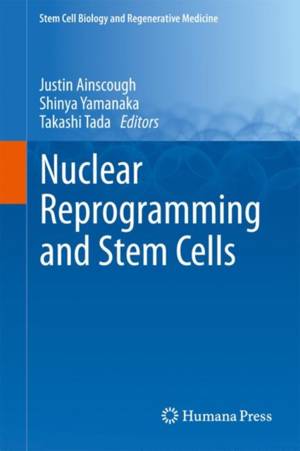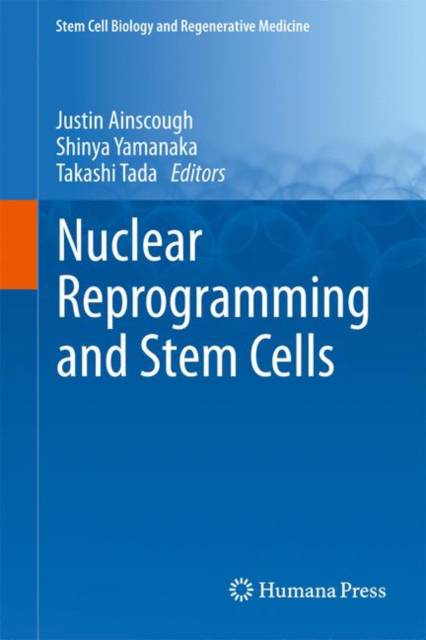
- Retrait gratuit dans votre magasin Club
- 7.000.000 titres dans notre catalogue
- Payer en toute sécurité
- Toujours un magasin près de chez vous
- Retrait gratuit dans votre magasin Club
- 7.000.000 titres dans notre catalogue
- Payer en toute sécurité
- Toujours un magasin près de chez vous
Nuclear Reprogramming and Stem Cells
Description
Introduction by John Gurdon and Azim Surani.- Introduction by Ian Wilmut.- Inherent Nuclear Reprogramming in Mammalian Embryos.- Epigenetic Reprogramming During Somatic Cell Nuclear Transfer and the Development of Primordial Germ Cells.- Epigenetic Reprogramming with Oocyte Molecules.- Cell Fusion-Mediated Nuclear Reprogramming of Somatic Cells.- Generation of Induced Pluripotent Stem Cells from Somatic Cells.- The Consequences of Reprogramming a Somatic Cell for Mitochondrial DNA Transmission, Inheritance and Replication.- The Function of Nanog in Pluripotency.- The Function of Oct3/4 and Sox2 in Pluripotency.- Generation of Neural Cells from Pluripotent Stem Cells.- Non-Cell Autonomous Reprogramming Towards a Pluripotent State.- Towards Regeneration of Retinal Function Using Pluripotent Stem Cells.- Reprogramming Towards Pancreatic beta-Cells.- Pancreatic Plasticity and Reprogramming - Novel Directions Towards Disease Therapy.- Phenotype and Developmental Potential of Cardiomyocytes from Induced Pluripotent Stem Cells and Human Embryonic Stem Cells.- The Generation of Disease Specific Cell Lines and Their Use for Developing Drug Therapies.- Advances in the Culture of Human Embryonic Stem Cells.- Culture adaptation of pluripotent stem cells: challenges and opportunities.- Epilogue.
Spécifications
Parties prenantes
- Editeur:
Contenu
- Nombre de pages :
- 332
- Langue:
- Anglais
- Collection :
Caractéristiques
- EAN:
- 9781617792243
- Date de parution :
- 01-09-11
- Format:
- Livre relié
- Format numérique:
- Ongenaaid / garenloos gebonden
- Dimensions :
- 157 mm x 234 mm
- Poids :
- 566 g






